Tin mới y tế ngày 10/10: Chuyển đổi số y tế mang lại nhiều lợi ích
Những năm qua, Bộ Y tế luôn coi ứng dụng công nghệ thông tin và chuyển đổi số là nhiệm vụ quan trọng và ưu tiên hàng đầu.
Ứng dụng chuyển đổi số trong ngành Y tế
10/10 là Ngày Chuyển đổi số quốc gia, từ thực tiễn của ngành Y tế cho thấy, thời gian qua, bên cạnh sự phối hợp của các bộ, ngành, các cơ quan, đơn vị, Bộ Y tế đã chủ động, nỗ lực thực hiện chuyển đổi số toàn diện trên các mặt, bao gồm phát triển các nền tảng số y tế, phát triển Chính phủ điện tử hướng đến Chính phủ số trong ngành.
 |
| Những năm qua, Bộ Y tế luôn coi ứng dụng công nghệ thông tin và chuyển đổi số là nhiệm vụ quan trọng và ưu tiên hàng đầu. |
Bộ Y tế đã triển khai các dịch vụ y tế như khám, chữa bệnh từ xa; quản lý bệnh không lây nhiễm; tiêm chủng, quản lý về thuốc quốc gia, phần mềm quản lý cho các trạm y tế xã, phần mềm quản lý về dược phẩm… giúp cho công tác quản trị điều hành của ngành y tế thay đổi, đồng thời giảm chi phí về chăm sóc sức khỏe cho người dân, doanh nghiệp.
Bên cạnh đó, Bộ Y tế hoàn thành cơ bản các chỉ tiêu 10 năm của Nghị quyết số 36-NQ/TW, cụ thể về mục tiêu phát triển Chính phủ số trong y tế, 100% hồ sơ công việc tại Bộ Y tế được xử lý trên môi trường mạng (trừ hồ sơ công việc thuộc phạm vi bí mật nhà nước); Duy trì 100% dịch vụ công trực tuyến mức độ 4.
Cùng đó, Bộ đã xây dựng, đưa vào sử dụng Hệ thống thông tin giải quyết thủ tục hành chính Bộ Y tế, có cung cấp phiên bản chạy trên thiết bị di động; duy trì Cổng công khai y tế, Cổng công khai giá các thiết bị y tế 100% các thông tin về giá thuốc, giá trang thiết bị y tế, giá vật tư y tế, giá sinh phẩm chẩn đoán, giá khám chữa bệnh, giá niêm yết, giá đấu thầu, thông tin về các sản phẩm đang lưu hành hoặc đã được thu hồi, kết quả xử lý thủ tục hành chính, những vi phạm trong quảng cáo… được công khai trên cổng.
Một số chế độ báo cáo, chỉ tiêu tổng hợp báo cáo định kỳ và báo cáo thống kê trong lĩnh vực y tế phục vụ sự chỉ đạo, điều hành của Bộ Y tế được kết nối, tích hợp, chia sẻ dữ liệu số trên hệ thống thông tin báo cáo Quốc gia; Phát triển xã hội số trong y tế – 100% các cơ sở y tế triển khai thanh toán không dùng tiền mặt;
Hầu hết các bệnh viện từ tuyến tỉnh trở lên và các bệnh viện ngoài công lập triển khai đăng ký khám chữa bệnh trực tuyến, từ xa; Chuyển đổi số trong phòng bệnh và chăm sóc sức khỏe nhân dân, tạo lập hồ sơ sức khỏe điện tử; 100% các xã triển khai phần mềm quản lý trạm y tế xã.
Về chuyển đổi số trong khám bệnh, chữa bệnh, đến nay đã kết nối liên thông giữa 63 Sở Y tế, 63 cơ quan bảo hiểm xã hội, 100% cơ sở khám bệnh, chữa bệnh trên toàn quốc với hệ thống giám định của Bảo hiểm Xã hội Việt Nam; 100% cơ sở khám chữa bệnh đã triển khai hệ thống thông tin bệnh viện (HIS); 63/63 tỉnh thành đã triển khai kê đơn thuốc điện tử.
Về định danh công dân trong khám chữa bệnh, liên thông dữ liệu, Bộ Y tế cho biết, hiện nay tỷ lệ bao phủ bảo hiểm y tế của Việt Nam đạt 93,35%, mỗi năm có tới 170 triệu lượt khám bệnh ngoại trú tại các cơ sở khám, chữa bệnh, trong đó khám chữa bệnh bảo hiểm y tế chiếm hơn 60% và hơn 17 triệu lượt điều trị nội trú, trong đó người bệnh bảo hiểm y tế chiếm 80%.
Lần đầu tiên đồng thời ghép tim-gan cho bệnh nhân
Anh Đ.V.H (41 tuổi) phát hiện bệnh cơ tim giãn từ lâu, chức năng tim suy giảm theo thời gian kèm theo gan, thận và các tạng khác cùng suy giảm. Cách đây 1 tuần, người bệnh nhập viện tại Bệnh viện Hữu nghị Việt Đức trong tình trạng suy tim.
Ngày 30/9/2024, người bệnh suy tim mất bù, không đáp ứng phương pháp điều trị thông thường, đặc biệt suy gan phát triển cấp tính, thận theo đó cũng bị ảnh hưởng.
Các xét nghiệm cho thấy anh H. có tình trạng đông máu rối loạn nghiêm trọng, sự sống của được tính theo ngày, duy trì bằng máy tim phổi nhân tạo thay chức năng tim, lọc gan thay chức năng gan. Cách duy nhất có thể cứu sống người bệnh là thay thế đồng thời tim và gan.
Cũng tại thời điểm 30/09/2024, Bệnh viện Hữu nghị Việt Đức nhận được thông tin từ Bệnh viện Hữu nghị Đa khoa Nghệ An (là bệnh viện vệ tinh của Bệnh viện Hữu nghị Việt Đức về ngoại khoa, được chuyển giao các gói ghép từ Bệnh viện Hữu nghị Việt Đức) có một bệnh nhân chấn thương sọ não nặng và không còn kỳ vọng sống.
Gia đình bệnh nhân có nguyện vọng hiến tạng của người thân. Bệnh viện Hữu nghị Đa khoa Nghệ An yêu cầu Bệnh viện Hữu nghị Việt Đức hỗ trợ về chuyên môn.
Ngay khi nhận được thông tin Bệnh viện Hữu nghị Việt Đức đã cử nhóm tăng cường hỗ trợ hồi sức cho người bệnh, đánh giá tình trạng chết não và tình trạng các tạng trong trường hợp có thể lấy được tạng. Trưa ngày 01/10/2024, các bác sĩ xác định bệnh nhân chết não và các tạng của bệnh nhân có thể sử dụng để ghép cho những người bệnh khác.
Một cuộc họp của hội đồng chuyên môn do TS.Dương Đức Hùng, Chủ tịch Hội đồng khoa học Bệnh viện triệu tập gấp chuyên gia trong các lĩnh vực hồi sức, tim mạch, gan, thận tham gia hội chẩn.
Đây thực sự là một ca phẫu thuật cần cân nhắc các tình huống do tình trạng bệnh nhân cả gan – tim – thận đều suy ở giai đoạn rất nặng, nguy cơ tử vong cao nếu không đuợc ghép.
Đây là trường hợp hết sức khó khăn, tuy nhiên Hội đồng khoa học Bệnh viện quyết định vẫn tiến hành ghép để mang lại hi vọng sống cho người bệnh. Ngay sau khi quyết định ghép được ban hành, các bộ phận đã khẩn trương vào cuộc.
Các bác sĩ Bệnh viện Hữu nghị Việt Đức đã chia 2 nhóm. Một nhóm ở lại giúp cho Bệnh viện Hữu nghị Đa khoa Nghệ An thực hiện đồng thời 2 ca ghép thận tại Bệnh viện Hữu nghị Đa khoa Nghệ An, nhóm còn lại nhanh chóng khẩn trương đưa tạng lấy được về Bệnh viện Hữu nghị Việt Đức.
Sau 03h30 phút di chuyển, tạng đã được đưa về Bệnh viện Hữu nghị Việt Đức. Trái tim và gan mới đã được cấy ghép vào cơ thể người bệnh. Sau 8 tiếng phẫu thuật, trái tim ghép đã bắt đầu được đập trở lại.
Sau ghép, bệnh nhân được chuyển về hồi sức và chăm sóc đặc biệt. Sau 36 tiếng, các chức năng gan – tim đã hồi phục dần. Đặc biệt trái tim đã thay thế hoàn toàn cho trái tim hỏng, các chức năng gan tốt dần lên.
Bệnh nhân được rút nội khí quản, tỉnh táo. Hiện tại, bệnh nhân đã có thể nói chuyện, tiếp xúc, cho ăn uống trở lại, chức năng tim tốt lên hàng ngày, chức năng gan hồi phục gần trở về bình thường, mật được tiết ra với chất lượng tốt.
Đây là lần đầu tiên trong lịch sử y học Việt Nam, các bác sĩ tiến hành thành công ca ghép tim gan đồng thời trên một bệnh nhân đặc biệt ở giai đoạn nặng. Qua đó cho thấy sự phát triển của nền Y học Việt Nam trong 20 năm qua, đặc biệt là lĩnh vực ghép tạng.
Những thành tựu trong ghép tạng thời gian vừa qua đã thể hiện vị trí nền Y học Việt Nam trong bản đồ ghép tạng thế giới. Trình độ y bác sĩ Bệnh viện Hữu nghị Việt Đức có thể làm chủ hoàn toàn các kỹ thuật, đặc biệt là kỹ thuật khó nhất trong ghép tạng.
Thành công của ca ghép thể hiện sự phối hợp của Bệnh viện Hữu nghị Việt Đức với vai trò là bệnh viện tuyến cuối đối với các bệnh viện vệ tinh trong chuyển giao kỹ thuật, phối hợp các công tác tổ chức giúp cho các bệnh viện dưới phát triển về lấy và ghép tạng, công tác tổ chức để lấy được tạng ghép.
Đây không phải lần đầu tiên tạng của người hiến ở các bệnh viện tuyến dưới được Bệnh viện Hữu nghị Việt Đức giúp cho về việc hồi sức tạng, lấy tạng, hỗ trợ ghép tại chỗ (Bệnh viện Đa khoa Xanh Pôn, Bệnh viện Đa khoa Phú Thọ, Bệnh viện Đa khoa tỉnh Thanh Hóa,…).
Sự hỗ trợ của Bệnh viện Hữu nghị Việt Đức giúp mở ra hướng điều trị cho người bệnh, mang lại cơ hội cho bệnh nhân suy tạng giai đoạn cuối không còn đáp ứng với các phương pháp điều trị truyền thống.
Không chủ quan với ung thư bàng quan
Tái khám sau một thời gian điều trị bằng bài thuốc dân gian nhưng không khỏi, ông N.Q.T., 64 tuổi, Đồng Nai, phát hiện mắc ung thư bàng quang đã di căn.
TS.Nguyễn Hoàng Đức, Trưởng khoa Tiết niệu, Bệnh viện Đa khoa Tâm Anh TP.HCM và Phòng khám Đa khoa Tâm Anh Quận 7, cho biết ông T. có nhiều khối u ác tính với kích thước khác nhau nằm rải rác trong bàng quang. Nghiêm trọng hơn, các khối u ác tính đã xâm lấn sâu xuống lớp cơ bàng quang và di căn sang một số hạch ở vùng chậu.
TS.Nguyễn Hoàng Đức cho biết thêm trong trường hợp ung thư bàng quang giai đoạn sớm, có thể điều trị bằng phẫu thuật cắt toàn bộ bàng quang, sau đó, tạo hình bàng quang mới từ một đọan ruột non, rồi nối niệu đạo và hai niệu quản vào. Với phương pháp này, người bệnh có thể đi tiểu theo đường tự nhiên sau phẫu thuật.
Tuy nhiên, ở trường hợp ông T., tế bào ung thư đã xâm lấn sâu vào cơ, đã di căn đến cổ bàng quang và niệu đạo nên không thể áp dụng phương án này.
Phương án tối ưu là phẫu thuật cắt toàn bộ bàng quang, nạo vét hết các hạch di căn, rồi dùng ruột non để chuyển lưu nước tiểu từ thận trực tiếp ra ngoài cơ thể qua một lỗ nhỏ ở thành bụng.
Ban đầu, ông T. lo lắng chất lượng cuộc sống ảnh hưởng sau phẫu thuật, nhưng sau cùng, ông chấp nhận phẫu thuật vì đó là cứu cánh duy nhất cho cuộc sống của ông.
Thống kê từ Tổ chức ghi nhận ung thư thế giới (GLOBOCAN) năm 2022 cho biết, ung thư bàng quang là ung thư phổ biến thứ 9 trên toàn thế giới và thứ hai trong hệ tiết niệu (chỉ sau ung thư tuyến tiền liệt), với 614.298 ca mắc mới và 220.596 ca tử vong.
Cùng năm tại Việt Nam, Tổ chức này ghi nhận có gần 2.000 ca mắc mới và hơn 1.000 trường hợp tử vong vì ung thư bàng quang.
TS. Nguyễn Hoàng Đức, nguyên nhân gây ra ung thư bàng quang hiện chưa được xác định rõ. Tuy nhiên, người có thói quen hút thuốc lá, từng bị nhiễm ký sinh trùng, thường xuyên tiếp xúc với hóa chất độc hại hay bức xạ… có nguy cơ mắc bệnh cao hơn.
Ung thư bàng quang khó nhận biết bởi các dấu hiệu ban đầu dễ bị nhầm lẫn. Do đó, bác sỹ khuyến cáo người bệnh cần lưu ý đến các cơ sở y tế uy tín để khám sớm khi có triệu chứng tiểu máu từng đợt, tái phát nhiều lần (triệu chứng phổ biến nhất); tiểu buốt, tiểu rắt; cơ thể mệt mỏi, chán ăn, sụt cân nhanh không rõ nguyên nhân.




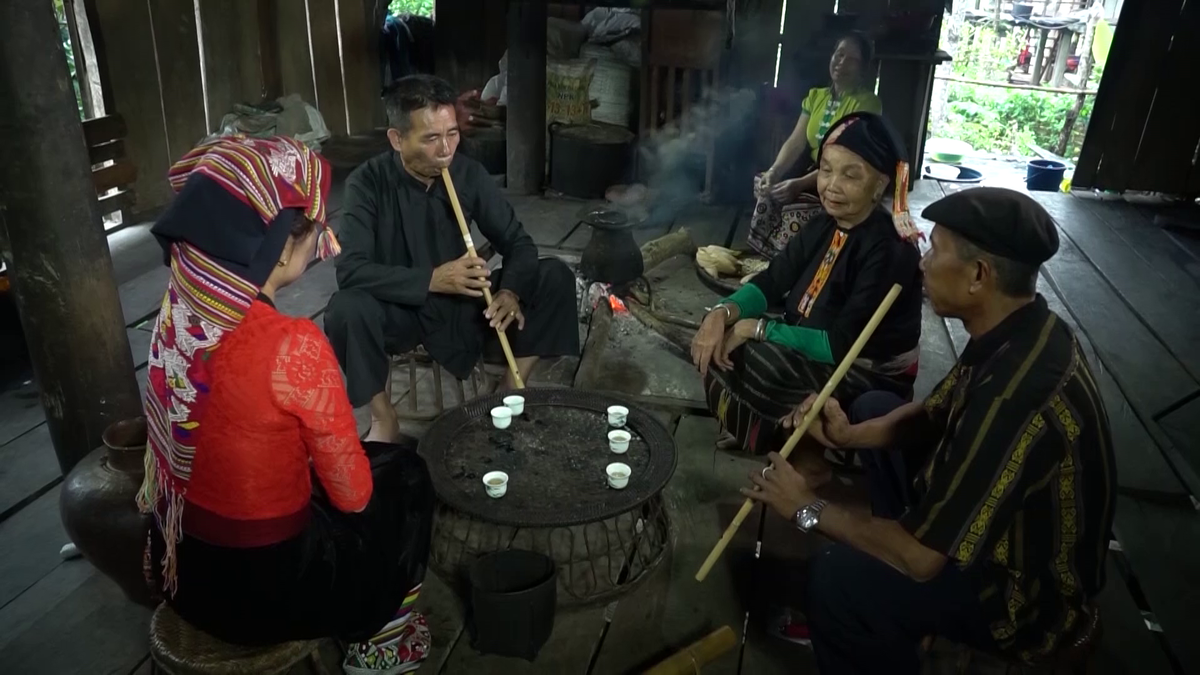



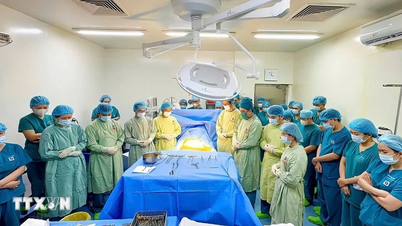

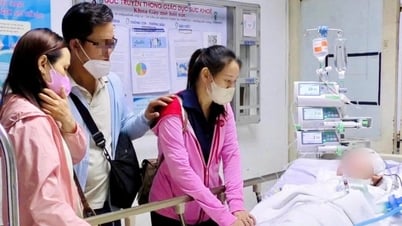



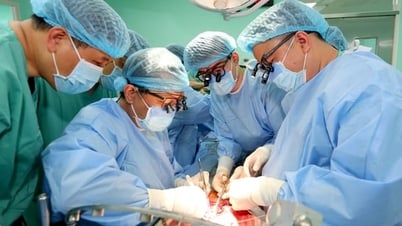
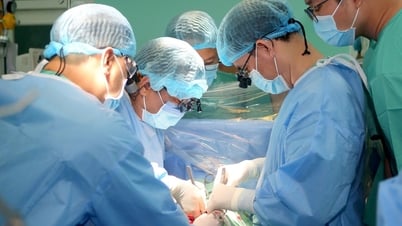

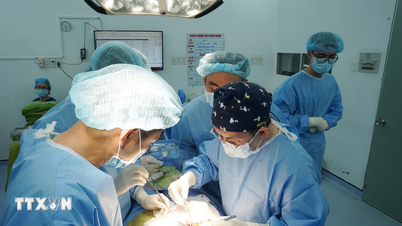











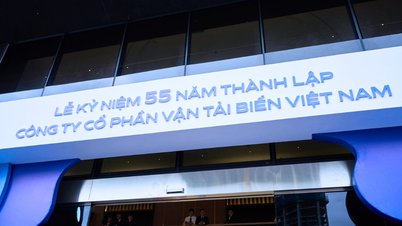


































![[Ảnh] Tổng Bí thư Tô Lâm dự ra mắt 3 nền tảng số phục vụ triển khai Nghị quyết số 57-NQ/TW](https://vphoto.vietnam.vn/thumb/402x226/vietnam/resource/IMAGE/2025/7/2/d7fb7a42b2c74ffbb1da1124c24d41d3)


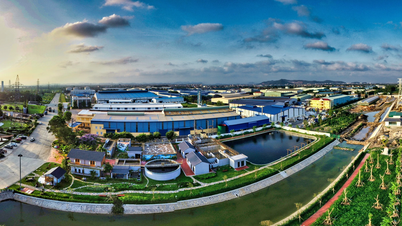




























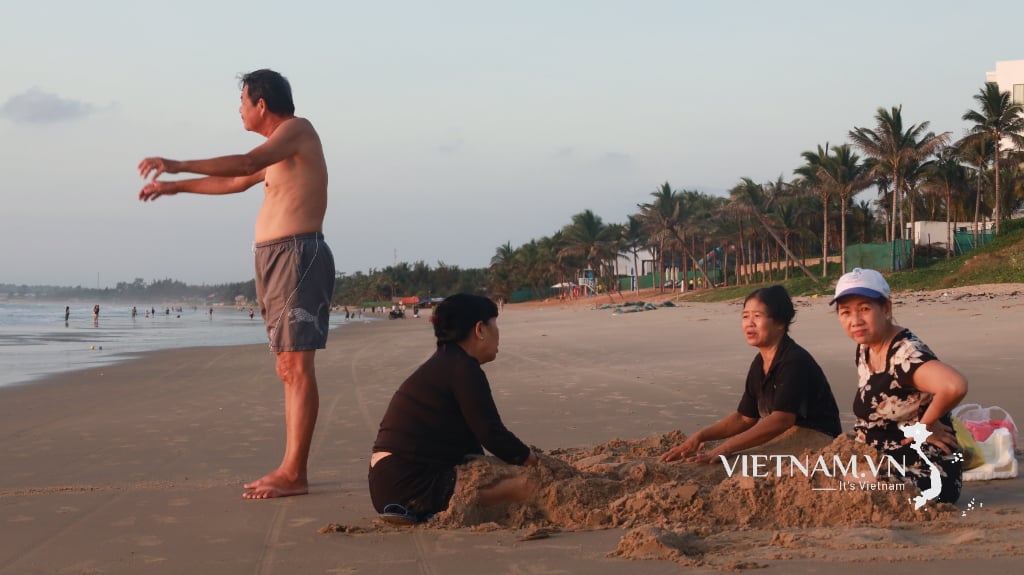



Bình luận (0)